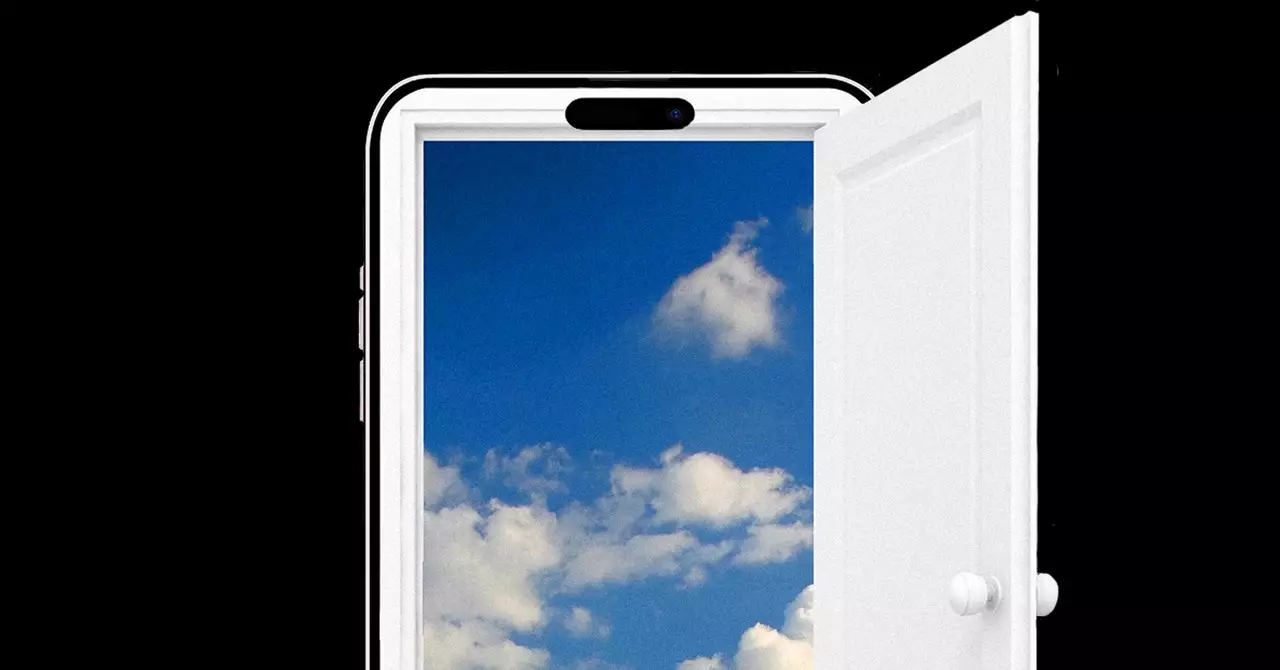In an age dominated by screens, it’s not uncommon to find ourselves engrossed in our devices for hours on end. Just recently, a group of colleagues shared insights into their daily engagement with social media and smartphones. As one participant revealed, she spends approximately three hours and 40 minutes on her phone, which she proudly deemed impressive. Yet, beneath this seemingly benign figure lies a deeper conversation about how we allocate our time online. This statistic raises questions about our actual engagement with social media versus the mindless scrolling that often accompanies it.
Our protagonist, embodying a mixture of pride and disbelief, admitted that only a small fraction of that time is spent on social platforms. This paradox highlights a broader trend: even those who limit their social media exposure often find themselves surprised by the volume of time they dedicate to their devices. The mixed feelings of joy and guilt surrounding screen time suggest an internal struggle as we navigate the digital landscape, prompting us to challenge our notions of productivity and leisure.
The act of setting boundaries with technology has become a crucial survival strategy for many. One participant discussed using a timer to limit Instagram access, an increasingly common and practical approach in today’s digital age. This commitment to self-regulation, while commendable, emphasizes a fascinating phenomenon – the degree of discipline required to manage our screen time effectively. The surprise expressed by colleagues upon their friend’s strict adherence to a timer symbolizes a cultural shift; it poses the question of responsibility concerning our digital consumption.
This dilemma illustrates how modern life often demands a balance between connectivity and mental well-being. The act of physically removing oneself from an app for a designated period is akin to practicing mindfulness. Yet, the struggle of wanting to break free from the screen only to be pulled back in reflects a societal pattern where meaningful connections are frequently made through virtual interactions rather than face-to-face conversations.
For many, the thought of disconnecting from social media often crosses the mind, but the pull of sharing life’s moments continues to captivate. Reflecting on this paradox, one participant fantasized about life devoid of the need to broadcast one’s existence online, an idea that may seem far-fetched to some yet resonates with those considering a sabbatical from the endless stream of notifications and curated posts.
The fantasy of stepping away illuminates a collective yearning to break free from the expectation to engage constantly. As we bombard ourselves with memes, jokes, and notifications, a subtle pressure emerges that dictates when, how, and why we use social media. The dialogue surrounding this need for social approval raises pertinent questions about our motivations for engaging online and the psychological implications that come with it.
There’s something to be said for the exhilaration found in spontaneity – those moments when we enchant ourselves in real life rather than through a screen. One participant candidly expressed the impulse to toss their phone aside in an effort to reconnect with the world around them, a gesture that highlights the desire to embrace the present moment without the intrusive buzz of digital communication. This humorous admission drives home the idea that, despite the ubiquitous allure of technology, there remains a tangential appreciation for lived experiences that cannot be captured in a digital format.
As this group navigated their complicated relationships with their devices, it became clear that it’s not just about screen time limits or apps that govern our behavior. It’s about redefining what it means to connect in today’s world, recognizing that while online engagement is an integral part of our lives, it should not come at the cost of our mental well-being or our ability to foster genuine relationships.
Ultimately, the discussion around social media use serves as a reminder that engagement with technology is a double-edged sword. We must find a balance that allows us to indulge in the benefits of connection while safeguarding our mental health from the overwhelming cacophony of notifications and expectations. By reflecting on our screen time habits and contemplating the allure of digital spaces, we can begin to strike a harmonious balance between our online and offline lives, steering towards a healthier, more mindful existence in a digitally dominated world.

